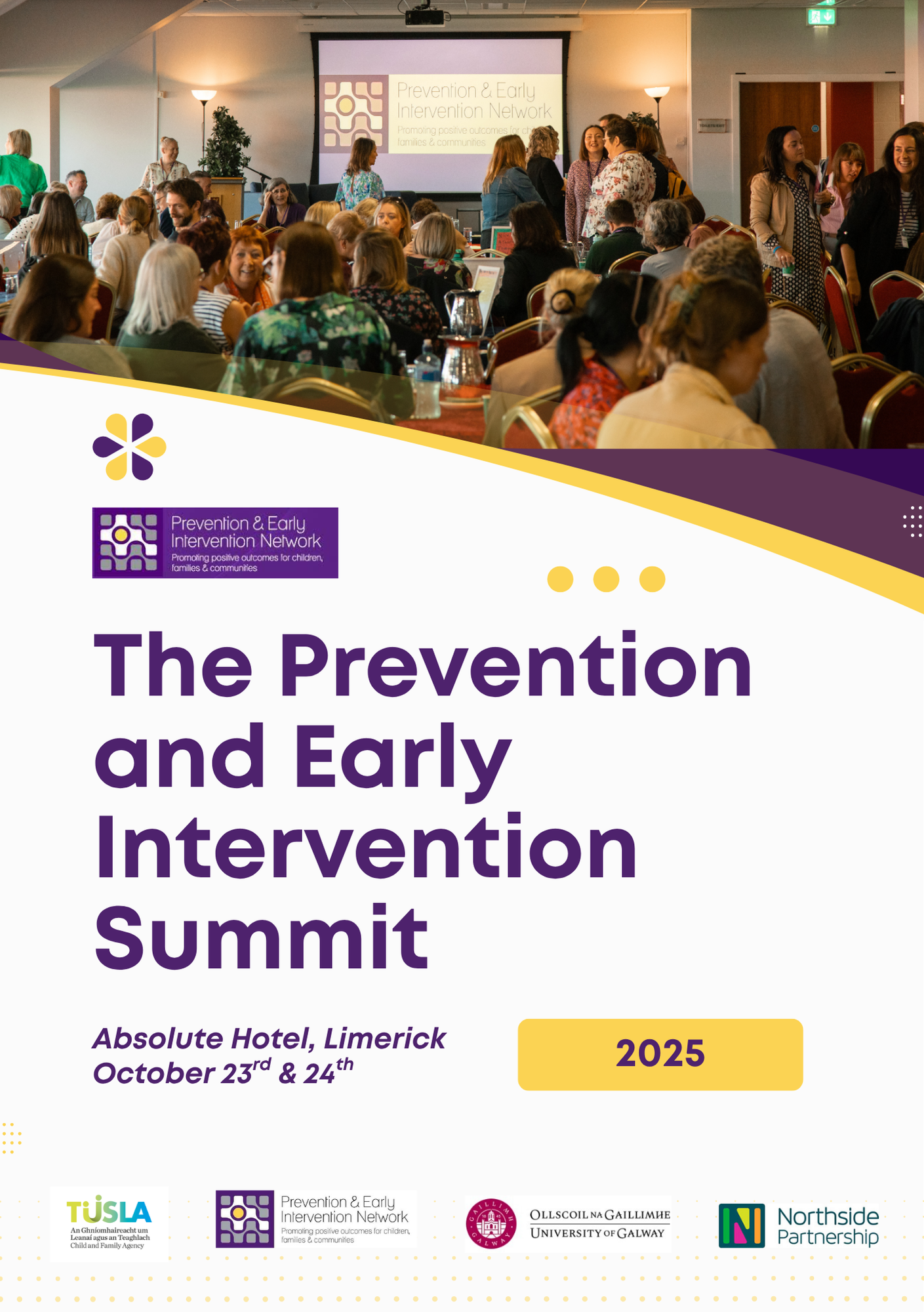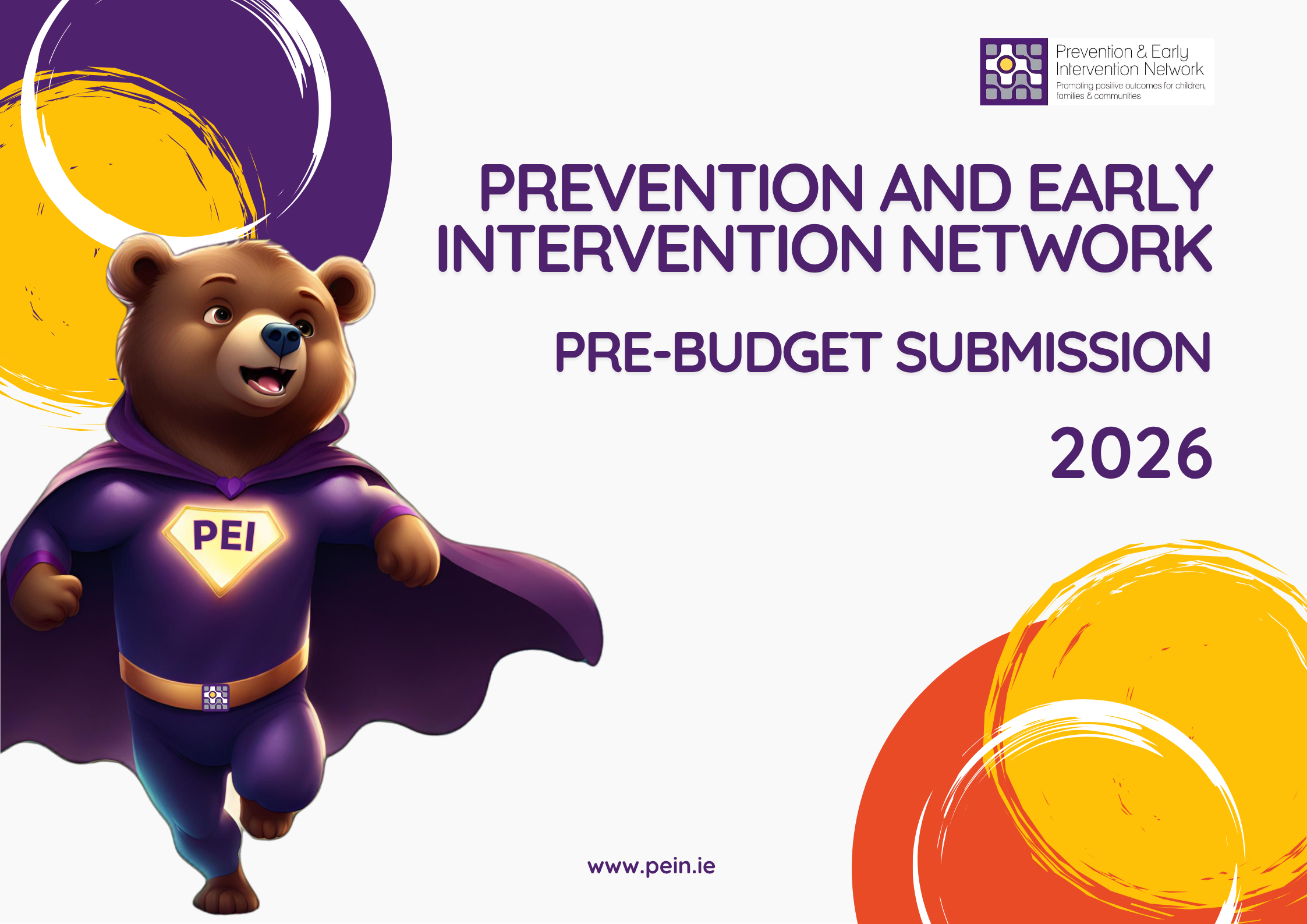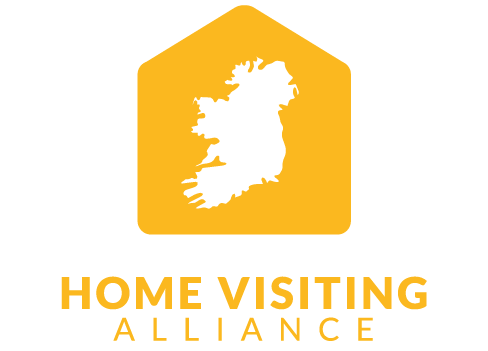
We note in particular the important inclusion of prevention and early intervention. Please review our submission for our full commentary.
Introduction
The Prevention and Early Intervention Network (PEIN) welcomes the publication of this draft strategy and the opportunity to engage in its concluding stages. PEIN is a membership organisation representing individuals and organisations working with children and families.
Our objectives are to:
- Share, develop and disseminate learning in prevention and early intervention practices and approaches
- Support the work of members and member organisations
- Influence policy and practice, nationally and internationally, as well as locally.
PEIN promotes and supports evidence-informed approaches, and provides professional supports to many individuals and organisations on how to integrate research and evidence into their daily practice and strategic planning.
Many of our member organisations are directly working with young people involved in criminality, and the vast majority of our members are engaged with children and families who are at risk of and vulnerable to offending behaviours.
Given our focus, PEIN notes the several references to prevention and early intervention approaches in the strategy, and supports the actions proposed to enable the implementation of these priorities.
We particularly welcome section 1.10 which refers to the importance of collaboration between academics and practitioners. The PEIN has been enabling this connectivity through our sharing opportunities and thematic working groups. We propose that PEIN and the Childrens Research Network be tasked with establishing structures and mechanisms which aim to
‘develop and adapt systems to support enhanced communication and cooperation between agencies and research bodies to maximise the use of data and research to inform Youth Justice Policy and the broader development of preventative and early intervention and approaches to support desistance from offending behaviour’.
Further, PEIN has developed expertise in effectively supporting the exchange of learning and knowledge across disciplines and sectors, and can support the implementation of these
aspects of the strategy (e.g. Section 2.10)
1.10.2 PEIN very much welcomes the commitment to the alignment of data systems, and notes that this is a significant issue, especially in Dublin. The inconsistent geographical boudoirs utilised by key state agencies (HSE; Tusla: ETBs; AGS; local authorities) makes any meaningful area analysis expectedly complex.
2.8.1 (d) PEIN strongly recommends that the strategy draws on and supports existing structures rather the developing new ones. CYPSC’s are required to develop an area plan which informs county-wide priorities. More localised issues and responses are considered at Child and family Support Network level, and both could readily include specific targets relating to highly at risk young people.
2.9.4 and 2.14.2 (h). Whilst PEIN recognises the need for efficient use of resources, and the value in more closely aligning services, the principle of keeping young people out of the justice system must be retained. Aligning diversionary initiatives with probation projects is fundamentally contrary to this principle, and should be avoided.
Finally, the Appendix notes that Family Conferencing options are rarely used. PEIN recommends that consultation with relevant professionals is undertaken to identify why this is the case. Family Conferencing has both a legislative and evidence basis, and it fits with prevention and early interventions principles. It is therefore surprising that it has been utilised so little. Understanding the barriers to its use, and what it would take to enable practitioners to effectively utilise the approach would be extremely helpful.
Lyndsey Andersen,
Coordinator,
PEIN.
continue reading
Related Posts
We are delighted to publish our delegate pack for the Prevention and Early Intervention Summit 2025 which takes place in […]
We are delighted to announce a Call for Submissions for the upcoming Prevention and Early Intervention Summit 2025, taking place this October in the Absolute Hotel, Limerick. […]
We have published our Pre-Budget Submission 2026, calling on the Government to prioritise multi-annual investment in services that support children, […]






